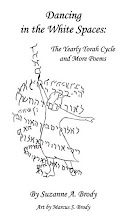A holiday, a new year, is a joyous thing a time when we see all the possibility of a clean slate laid out before us. We start a new school year with new clean notebooks and freshly sharpened pencils and pens full of ink. We read about new life with Isaac’s miraculous birth. But, as Jews, and as people, we know that a new beginning comes at the expense of an end. A new classroom or new school means leaving behind the old familiar one. A new activity means the end of time for what you used to do. And new lives often remind us of those no longer with us.
This is the dual personality of Rosh Hashanah that threads its way through our liturgy, our torah reading, our thoughts, and even our foods. In some ways, all of Rosh HaShanah is summed up in the Unetane tokef prayer that we say during musaf. “Who will live and who will die.” There are lots of ways to interpret what this means:
- Literal/physical continue to live or not
- Physical – who will be born and who die
- spiritual life/death
- somewhat metaphoric/causative – who will cause others to live or die (either literal birth death or by spiritually helping or hurting)
The concept of Rosh Hashanah as time when life and death are determined is further popularized in the image of the books of life and death. We teach children about books of life and death early – there’s even a coloring page on aish.com. Yet, at the same time, we teach children about Rosh HaShanah as the birthday of the world (and they are even having birthday party with cake here at Beth Am this afternoon). Even before that, we teach our children that Rosh Hashanah is about apples and honey and a sweet new year.
But, how can Rosh Hashanah be both about apples and honey and sweetness and looking forward to a bright future and simultaneously a time when we are preoccupied with death and all of the bad things that we do? Even as adults, it’s hard to grapple with death and the problem of why bad things happen. So, the rabbis and others tried to help answer those concerns by saying that bad things/death = punishment for our misdeeds. This way, we take our misdeeds seriously, as we should. If you do something bad, you get written in the book of death. Pretty serious punishment, so you better not do anything bad.
And, if the repetition of the unetane tokef prayer is not enough to get us thinking about death, we have the perplexing story of the Akedah, of Isaac being bound for death by his own father’s hand, as the Torah reading for today. But living always in the shadow of one’s own potential death as punishment for misdeeds is too scary, unsustainable, and condemns people to failure. We can never be perfect, try as we might.
So, as we say in the unetane tokef prayer, repentance, prayer, and charity have the ability to modify the divine decree against us; and as we read in the Torah, G-d sends an angel to stay Avrham’s hand so that he doesn’t actually kill his son. G-d doesn’t want us to “fail”, to be bad. Just as a parent threatens a child with severe punishment to deter the child from doing something naughty, so too G-d threatens us with the book of death; but no parent wants to have to follow through on the threat, nor does G-d. And, as we all know (either from delivering them or being in the receiving end), threats only work so much, and they don’t instill the type of loving relationship that we want to have between children and parents or between us G-d. So we balance the threat of being inscribed in the book of death with the promise of being inscribed in the book of life. We temper the binding of Isaac on the alter with his release. And we teach even our youngest children about both the book of life and the world’s birthday celebration with apples and honey because we know that even they are capable to learning to be ever better people. And we emphasize the hope and expectations we have for the coming year and the way in which we will pursue repentance, prayer, and charity as we eat our apples and honey and focus our energies on being inscribed in the book of life for a bountiful, sweet year.
Shanah tovah u’metukah
Wednesday, September 23, 2009
Tuesday, September 22, 2009
This morning's song
This morning, while playing, she was singing:
"it's raining
it's pouring
the old man was snoring
he went to bed
and brushed his teeth
and couldn't get up in the morning"
"it's raining
it's pouring
the old man was snoring
he went to bed
and brushed his teeth
and couldn't get up in the morning"
Sunday, September 6, 2009
Great Conversation
Abba: Promise me you'll never become a vegetarian.
Meital: Don't worry, Abba, I'll always be Jewish
Meital: Don't worry, Abba, I'll always be Jewish
Subscribe to:
Posts (Atom)
